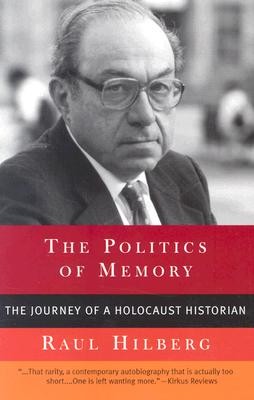
- Išsiųsime per 10–14 d.d.
- Autorius: Raul Hilberg
- Leidėjas: Ivan R. Dee Publisher
- ISBN-10: 1566634288
- ISBN-13: 9781566634281
- Formatas: 14.4 x 20.8 x 1.5 cm, minkšti viršeliai
- Kalba: Anglų
- Extra -15 % nuolaida šiai knygai su kodu: ENG15
Atsiliepimai
Aprašymas
This is the poignant memoir of a man who has spent most of his lifetime immersed in the evidence of one of the great horrors in human history. It is both a record of how it affected him and a revelation of the surprising ways in which his monumental work was received by his contemporaries. Even after thirty-five years, Raul Hilberg's The Destruction of the European Jews remains the most distinguished and comprehensive analysis of the Nazi destruction process. Yet at the time it was written, as Mr. Hilberg recounts in The Politics of Memory, both the manuscript and its subject matter were rejected by major publishers and university presses; and in the wake of publication the author faced a hostile reception from those who refused to believe that the Jews were less than heroic in their journey to the gas chambers. How his study was used and abused-especially by Hannah Arendt, Lucy Dawidowicz, and Nora Levin-draws Mr. Hilberg's attention, as does the more admiring reception for Destruction in Europe than in America. The Politics of Memory brings full circle a scholarly enterprise that in many ways has been a terrible calling.EXTRA 15 % nuolaida su kodu: ENG15
Akcija baigiasi už 2d.02:31:41
Nuolaidos kodas galioja perkant nuo 10 €. Nuolaidos nesumuojamos.

- Autorius: Raul Hilberg
- Leidėjas: Ivan R. Dee Publisher
- ISBN-10: 1566634288
- ISBN-13: 9781566634281
- Formatas: 14.4 x 20.8 x 1.5 cm, minkšti viršeliai
- Kalba: Anglų




Atsiliepimai